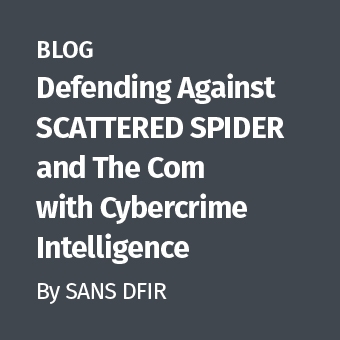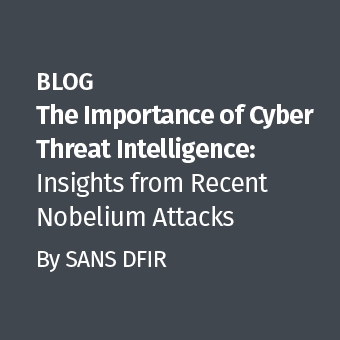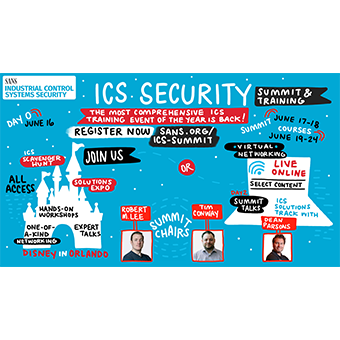North Carolina's Proposed Amendment
The North Carolina Private Protective Services Board is attempting to enact legislation that might require digital forensic examiners to become licensed private investigators. However, it could also open the door to license the digital investigator's separately. The language is vague and as such multiple organizations would love to see some specifics if the latter is the case.
In the proposed amendment: digital forensic examiners are defined as:
"Any person who, on a contractual basis, engages in the practice of conducting examinations of digitally stored data to recover, image, analyze, or examine the data by using specialized software to determine responsibility or reconstruct usage of the data."
Exemptions include accountants, network security administrators and response teams, persons who use utilities proprietary to the examined device to recover data without the use of additional software, such as cellular telephone call information, any other computer or digital media technician who is not conducting imaging, analysis, or other activities, and law enforcement.
The house bill has already been referred to for financial review. The senate bill will be read Tuesday, 07 APRIL at 10 AM in Room 1124LB. Cancelled - Pending Reschedule
If you would like to attend or contact your legislators if you live in NC, we suggest you telephone, email, and to testify before the committee and give your opinion as to how you think the proposed amendment will impact the profession of digital forensics.
There are, as yet, no regulatory requirements to demonstrate competence as a digital forensic examiner under the NC PI licensing laws and regulations.
The SANS Institute, HTCC, and the ISCFE, do not agree that the path of licensing digital forensic professionals as private investigators is in the best interest of our industry and lacks detail regarding the training/education and experience required to be successful in this profession.
Latest Updates:
Latest updates from Toby Finne, HTCC: It looks as though the intent is to create a separate digital forensic license. However, the wording of the amendment leaves much to interpretation. The NC PPSB, allegedly, intends to require the following for a separate digital forensic license: 3,000 hours in digital forensics or closely-related field. Appropriate credit shall be given for college-level degrees. Demonstrated successful completion of the basic training offered by the company supplying the analysis software used by the licensee is required. CEU's (similar to the PI) will be required. License holders will be required to obtain 12 CEUs during each license period.
Additional update via comment: Larry Daniel, Guardian Digital Forensics, from the blog Exforensis says that he is confident that this is a win for digital forensic specialists who did not want to be licensed as Private Investigators. He states "The change provides for a separate license for Digital Forensics Examiners."
Follow the links below for more information on the pending legislation:
- https://www.ncleg.gov/BillLookUp/2019/S584
- http://www.ncleg.net/gascripts/BillLookUp/BillLookUp.pl?Session=2009&BillID=H570
Bill sponsor for S584:
Sen. John Snow
North Carolina Senate
16 W. Jones Street, Room 2111
Raleigh, NC 27601-2808
TEL: 919.733.5875
FAX: 919.715.5815
EMAIL: John.Snow@ncleg.net
Bill sponsor for H570:
Rep. Pryor Gibson
NC House of Representatives
300 N. Salisbury Street, Room 419A
Raleigh, NC 27603-5925
TEL: 919.715.3007
FAX: 919.733.3113
EMAIL: Pryor.Gibson@ncleg.net
How could the amendment possibly read instead?
This recommendation was written by Doug White from the ISCFE.
This recommendation covers recommendations for language changes to Senate Bill 584 and to the Private Protective Services Code of North Carolina.
Key Issues
- Define Digital Forensics
- Determine Appropriate Licensure for Digital Forensics Practitioners
- Prevent unnecessary hardship on businesses currently operating in North Carolina while protecting citizenry from fraud, malpractice, and unethical actions on the part of digital forensics examiners.
Recommendations for S.B. 584 Add to section 1.a.5a (line 19)
h. A person who conducts imaging, analysis, or other digital forensics examination under the supervision of an attorney, a law enforcement agency, or as an officer of the court and holds the following:
- A nationally recognized certification which has:
- A written and practical examination of skills
- A code of professional ethics.
- An ethics board which reviews violations.
- A regular recertification process.
Reasoning: This then only requires PI licensing for individuals who are operating essentially as investigators for hire. The change allows those who examine materials under supervision of the State in some fashion to continue to do business with this supervision ensuring the rights of the citizens are protected and ethics are being considered and reviewed.
Recommendations for SubChapter 7D of Private Protective Services Board A
dd Section .1300 — Digital Forensics Examiner
12 NCAC 07D.1300 EXPERIENCE REQUIREMENTS FOR DIGITAL FORENSICS EXAMINER
In addition to the requirements of 12NCAC 07D .0200, applications for a Digital Forensics Examiner license shall:
- A graduate of an accredited institution of higher education with a baccalaureate or postgraduate degree in the field of police administration, security management, investigation, law, criminal justice; computer forensics or other computer forensic industry certificated study that is acceptable to the board or work experience in the computer forensics field which is deemed to be equivalent to the degree in the opinion of the board. This is to be established through presentation of official transcripts provided to the Board or reasonable presentation of verified work history to the Board.
- Acceptable certificated studies in the computer forensics industry shall be computer forensic certification programs that are comprised of the following components:
- At least 40 hours of training which includes:
- Technical Material
- Scientific Method
- Legal aspects of computer forensics
- Legal aspects of privacy
- Legal aspects of search and seizure
- The preservation of evidence
- Investigative best practices
- A written examination which is:
- Documentable with either a certificate of completion or transcript from the agency.
- Maintained in accordance with reasonable examination practice.
- A practical examination or peer reviewed paper which:
- Assesses the individual's ability to conduct effective and legal examinations.
- Is documentable with either a certificate of completion or transcript from the agency.
- A code of professional ethics which:
- Includes an ethics board of review to investigate wrongdoing
- Includes punitive action for violations
- At least 40 hours of training which includes:
Reasoning:
This provides individuals with reasonable work histories or training, as well as professionally managed certifications to be eligible to apply for licensure in the State of North Carolina. We understand the need that states will need to ensure the professionalism of experts that might be involved in cases.
What else could be added? What is going on in your state? General thoughts? While no solution will appease everyone, this is miles ahead of similar licensing restrictions found in other states, but if you were asked what your thoughts on this would be, what would you say?
Rob Lee is a Principal Consultant for MANDIANT, a leading provider of information security consulting services and software to Fortune 500 organizations and the U.S. Government. Rob has over 12 years experience in computer forensics, vulnerability discovery, intrusion detection, and incident response. Rob is the lead course author and faculty fellow for the computer forensic courses at the SANS Institute.





